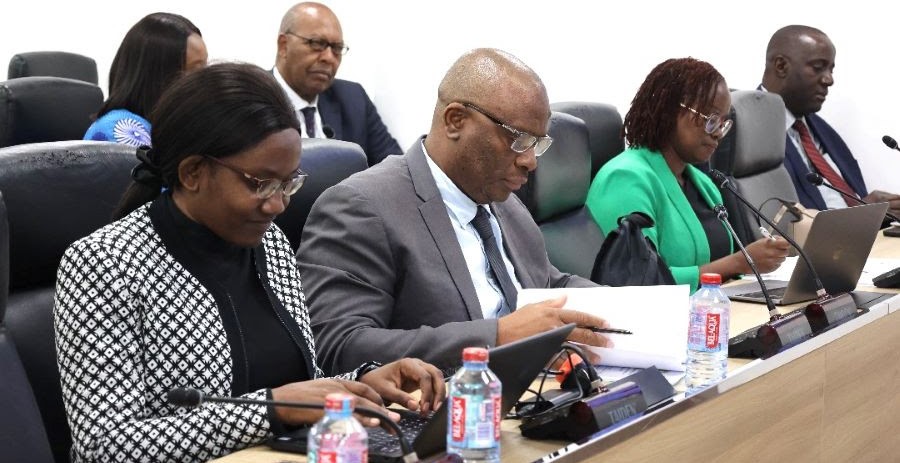Tanzania and South Sudan missing out as Africa’s Tripartite Free Trade Area Agreement sails on
The Tripartite Free Trade Area Agreement now comes into force on July 25, 2024.
This follows the attainment of the required threshold. For the Agreement to take effect, at least 14 out of the 29 Member States needed to deposit their Instruments of Ratification.
The Partner States that have deposited their Instruments of Ratification include Angola, Botswana, Burundi, Egypt, Eswatini, Kenya, Lesotho, Malawi, Namibia, Rwanda, South Africa, Uganda, Zambia and Zimbabwe.
For some reason Tanzania and South Sudan have not deposited their instruments of ratification.
“Tanzania reported that it was in the process of ratifying the Agreement, while South Sudan says it has begun the process of signing and ratifying the Agreement,” the East African Community’s Secretary General Veronica Nduva stated.
The Tripartite Free Trade Area comprises the East African Community (EAC), the Southern Africa Development Community (SADC) and the Common Market for Eastern and Southern Africa (COMESA).
The entry into force of the Agreement follows the depositing of Instrument of Ratification by the Republic of Angola on 25th June 2024, bringing the total number of the Instruments of Ratification deposited to 14, the number required for the Agreement to enter into force.
This update was announced during the 37th Tripartite Task Force Meeting, which took place on 20th July 2024 on the sidelines of the 6th African Union Mid-Year Coordination Meeting in Accra, Ghana.
The meeting was attended by the Chief Executive Officers of the three Regional Economic Communities.
These are Elias Mpedi Magosi, the Executive Secretary of the Southern African Development Community (SADC) and Chairperson of the Tripartite Task Force; Veronica Nduva, Secretary General of the East African Community (EAC) and Chileshe Mpundu Kapwepwe, Secretary General of the Common Market for Eastern and Southern Africa (COMESA).

These countries together accounted for 75 percent of the Tripartite GDP in 2022.
Elias Mpedi Magosi, the Executive Secretary of the Southern African Development Community informed the meeting that on 20th June, 2024, the Republic of Djibouti notified the COMESA Secretariat that it had ratified the Agreement.
The SADC Executive Secretary recalled that the Tripartite Summit of Heads of State and Government decided on 22nd October, 2008 to establish a Tripartite Free Trade Area (TFTA) among the COMESA, EAC and SADC blocs.
“The objective of establishing the COMESA-EAC-SADC FTA was to enhance market access, address the issue of multiple memberships and further the objectives of cooperation, harmonization, and coordination of policies among the three Regional Economic Communities,” he said.
The 29 Tripartite Member States represent 53 percent of the African Union’s membership, more than 60 percent of continental GDP (USD 1.88 trillion), and a combined population of 800 million.
The Executive Secretary of SADC also committed to continuing engagement with the Tripartite Partner States that have yet to ratify the Agreement.
“We urge the Member States to mobilize resources and support the implementation interventions, including setting up the necessary implementation structures,” he said.
The Tripartite framework is based on three pillars: Market Integration, which involves trade liberalization through the creation of a Free Trade Area and arrangements for the movement of business persons and Infrastructure Development, which focuses on enhancing connectivity and reducing business costs.
There is also Industrial Development, which aims to create a supportive environment by improving regulatory and legal frameworks, adding value, diversifying industries, increasing productivity and competitiveness, and implementing programs for structural change.
The EAC Secretary General, Veronica Nduva, highlighted the need to consolidate the Tripartite FTA through the Agreement’s implementation, to harness potential benefits, preserve gains and strengthen the participation of Member States in the AfCFTA.
Chileshe Kapwepwe, the Secretary-General of COMESA, expressed appreciation for the efforts that have achieved the required number of ratifications for the Tripartite FTA.
“To support the AfCFTA, we must ensure the tripartite works effectively. I urge the Tripartite RECs to lead the work under their respective pillars to avoid duplication of efforts,” said Kapwepwe.

